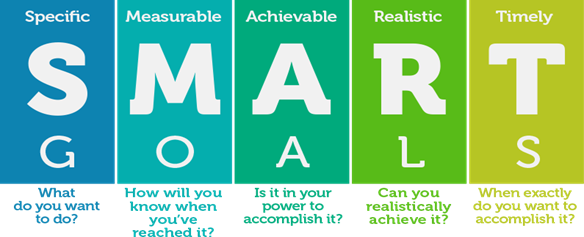Here are some psychological strategies to help you stick to your goals.
The holidays are officially over and it’s time to spend today doing what most of us often do on the very first weekend of the year — making our New Year’s resolutions.
But writing goals is one thing; making sure you are able to keep them throughout the year is another matter. Studies have shown that 80% of New Year’s resolutions fizzle out by mid-February, with the reasons ranging from loss of motivation to lack of social support. If you want to belong to the 20% who are able to successfully turn their resolutions into a lifelong habit, below are some things you can try:
- Rephrase your resolutions. In a study published last December 9 in the American scientific journal PLOS ONE, scientists discovered that those who phrased their resolutions as an “approach goal,” or where they tried to adopt a new habit or introduce something new to their lives, were the ones that had the highest rate of success. On other hand, resolutions about avoiding or quitting something, or “avoidance goals,” proved to be less successful. This is because it’s easier to introduce a new behavior than to erase a bad habit.
So for example, if your goal is to stop eating sweets in order to lose weight, you will most likely be more successful if you say ‘I will eat fruit several times a day’ instead. You then replace sweets with something healthier, which probably means you will lose weight and also keep your resolution,” says Professor Per Carlbring at the Department of Psychology, Stockholm University, one of the collaborators of the above study.
- Tell someone about it. Don’t keep your resolution a secret. Tell friends and family members so that they will support your goals and remind you when you start to forget about them. An even better thing to do would be to find a friend who has the same New Year’s resolution as you so that you can motivate each other.

- Set SMART goals. The SMART acronym was first coined by corporate consultant George T. Doran in 1981 and has since become the benchmark for making an effective goal, whether professional or personal. For your resolution to stick, it has to be:
- Specific. When you have a concrete idea of what you want to accomplish, you become more motivated. “I will eat healthier” is admirable but vague; “I will eat more fruits and vegetables every meal” is more defined and gives you a blueprint to follow.
- Measurable. When you can track your progress (see #4), you will feel more confident to carry on or make tweaks when needed.
- Achievable. Don’t resolve to “Climb Mt. Everest by the end of the year” if you have a sedentary lifestyle. Amending your resolution to “Go hiking with friends every month” is more realistic.
- Relevant. Your goals need to be significant to you, and suitable to your existing skills and resources, otherwise it can easily be discarded. For example, if you feel you have been doing a good job at work, aiming for a promotion is a logical and relevant next step. On the other hand, aiming to learn skills that are better suited in another department, while admirable, is not an efficient way to make use of your strengths.
- Time-bound. This helps you track your progress. “I want to be able to do 10 full-body push-ups in two months” gives you something to work towards than if you just leave it as “I want to be able to do 10 full-body push-ups, period.”
- Aim for progress not perfection. Celebrate every step in the right direction, no matter how small. Being able to do two push-ups out of 10 is better than zero; “small wins” can also reinforce the belief that you have the ability to change, and that your goals are within your reach.
- Learn and adapt. Encountering a setback is one of the most common reasons why people give up on their New Year’s resolutions. So if you suddenly relapse into a bad habit, don’t view it as a failure; instead, use it as a learning opportunity. One way to keep track is to maintain a resolution journal, where you can write down important information about when the relapse occurred, what might have triggered it, and what you might do differently next time. By understanding the challenges you face, you will be better prepared to deal with them in the future.
- Be patient. Change is a process. Those unhealthy or undesired habits that you are trying to change probably took years to develop, so don’t expect to change them in just a matter of days, weeks, or months.

It may take longer than you would like to achieve your goals, but remember that working toward your resolution is a marathon, not a sprint to the finish line. Once you have made the commitment to changing a behavior, it may be something that you have to continue to work on for the rest of your life.
If in the process you feel you are losing motivation, become overwhelmed by self-doubt, or need to ease your anxieties, you can always reach out to MindNation psychologists or WellBeing Coaches for teletherapy sessions. Book a session thru bit.ly/mn-chat.
— Written by Jaclyn Lutanco-Chua of MindNation


One reply on “6 Ways To Succeed In Keeping Your New Year’s Resolutions”
Have been using the SMART system of goal planning for business and personal use for over 20 years now, it works ! Well done Jaclyn for helping people make more meaningful and measurable targets. Happy new year !
LikeLike